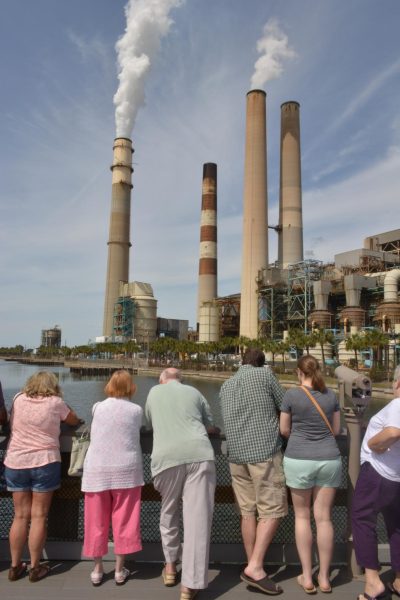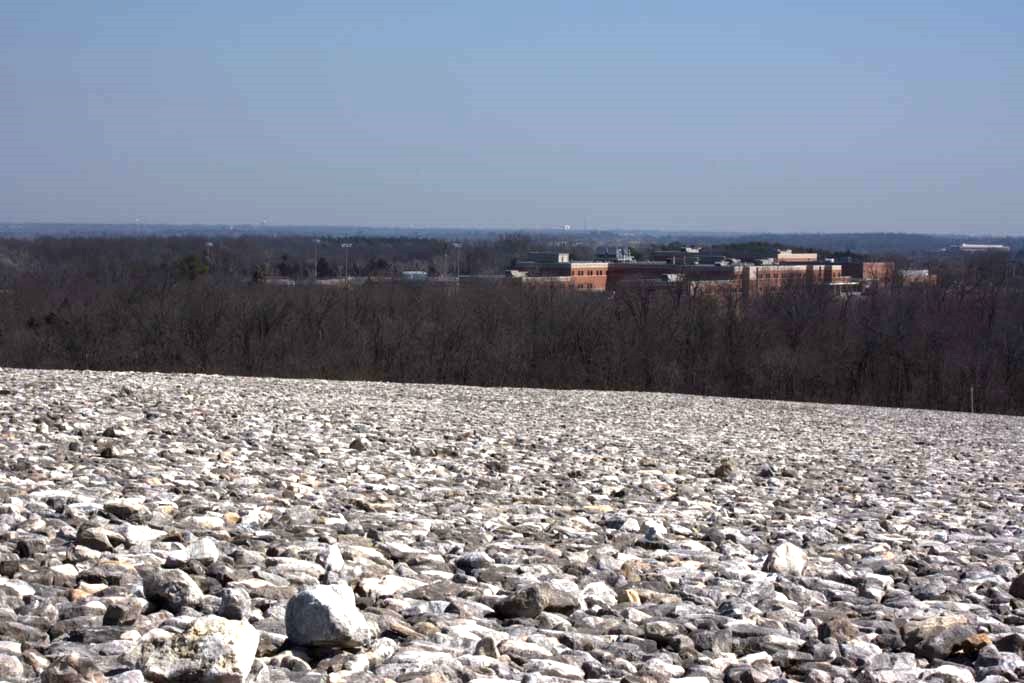Imagine walking along a path, up a colossal mound of rock for a picnic with a view, all while knowing what lies beneath your feet is nuclear waste. Or watching a remote-control boat race on a lake’s shoreside despite an ongoing, years-long effort to rinse the lake of toxins that stem from a legacy of industrial pollution in the area. Or going to a nature preserve that abuts a power plant and teems with manatees, because the warm water produced by the power plants draws the animals in.
These are all realities that act as case studies in associate English professor Tom Bowers’ book, “Environmentalism and Contemporary Heterotopia.” The book ponders the uncanny relationships humans have formed with their environments. Using the concept of a heterotopia–the middle ground between the pristine and care-free utopia and the tormented, soiled dystopia–the book argues that humans have learned to live alongside the byproducts of their own will, which oftentimes are dirty, toxic or ugly.
“We live in this strange kind of time where waste and dirt is something that we’ve just tried to consistently push away, right? We send the waste to the landfill, we use the soap to get the dirt off us, we want to be clean, have clean yards. All this other kind of stuff. But my argument is basically that that kind of logic doesn’t work anymore, because we live in a dirty environment,” said Bowers.
“So then the question is what do we do? How do we live with this dirt? What does it mean to live in a dirty planet in this kind of way? And so the book kind of explores ways that environmentalism can kind of reorient itself,” he went on.
Bowers said the rhetoric behind this stance is called “new materialism.” It’s an idea that rebuffs the anthropocentric mindset that humans have the intelligence and agency to shape the world into anything we would like it to be. Rather, this slant tends to believe that there are forces, whether natural or unintentionally human-induced, that humans can’t correct or undo.
The book’s themes began unraveling before Bowers when he visited Tampa Electric’s Manatee Viewing Center. His mother lives in Florida about an hour away from the destination. It’s a manatee sanctuary that is literally enabled by the power plant’s operations. “Our Big Bend Power Station in Apollo Beach circulates water from Tampa Bay for cooling, then sends the water flowing clean and warm back into the bay,” reads the tourist attraction’s website.

Bowers became fascinated with the juxtaposition of nature and industry that seems increasingly ubiquitous. He sought out places that exemplify the book’s main themes, traveling to a contaminated lake in Illinois and a nuclear-waste dump that doubles as a walking trail in Missouri. Despite the normalcy with which these places integrate into the lives of the people surrounding them, he couldn’t look past the absurdity of them.
After researching, writing and presenting work on some of these places and ideas, Bowers was approached by the publisher Lexington Books with the idea of tying them into a book. He spent about three years flirting with the topic as a research interest and about another three years writing it.
Much of the book was written during the throes of the COVID pandemic, said Bowers. He also took a sabbatical in the span that he was writing, which he said helped him to devote more time to writing. While teaching classes and other duties as a professor, he took advantage of any spare moment to write.
The book was named a 2023 Choice Reviews Outstanding Academic Title.


